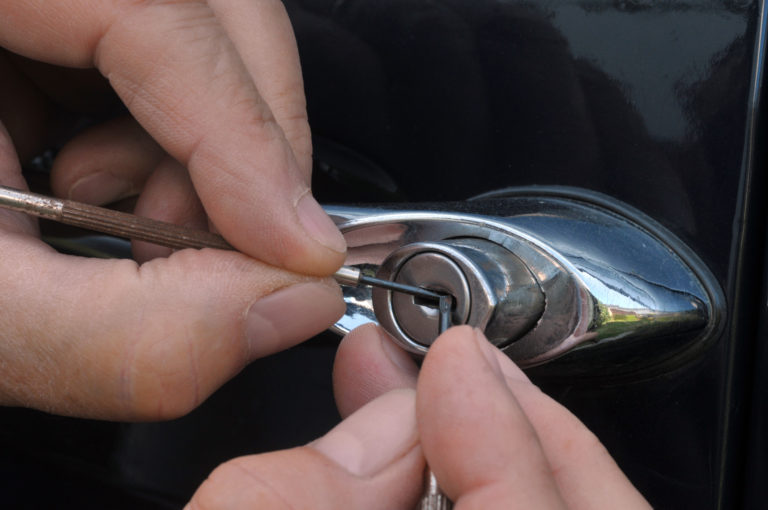One thing that hasn’t changed in the automotive industry is the car key. However, a lot of innovative thinking has been applied to this basic instrument. Car keys today vary from simple mechanical models to sophisticated smart keys, each offering unique levels of sophistication, convenience, and security. The following are the main types of car keys and their differences:
Mechanical Keys
Mechanical keys, the traditional type of car keys, have been in use for many decades. These keys rely entirely on physical mechanisms for operation and do not contain any electronic components.
Characteristics
Crafted from metal with a specific cut pattern, mechanical keys are used to manually unlock or start the vehicle by inserting them into the door or ignition lock and turning. They can be replicated using key cutting machines available at locksmith shops or hardware stores.
Pros
Designed for simplicity in operation, mechanical keys do not require additional technology for use. They are durable, resistant to water damage and electronic failure, ensuring reliability in diverse conditions. Additionally, they tend to be more budget-friendly to replace or duplicate compared to advanced key types.
Cons
Mechanical keys are typically less secure than electronic alternatives as they are more prone to picking or duplication and lack electronic security components. Additionally, utilizing a remote control or smart key can be more convenient than manual operation, especially in scenarios requiring swift access.
Remote Keys
Remote keys, often called key fobs, incorporate electronic elements into traditional key designs, allowing remote management of specific vehicle operations.
Characteristics
Remote keys combine a small electronic remote with a standard mechanical key, sometimes including the mechanical key within the fob. They establish wireless connections to the vehicle’s locking system through radio frequency signals, allowing for remote operations such as trunk access, locking, and car alarm activation.
Pros
Remote keys provide unmatched convenience by enabling remote access to automobiles, eliminating the need for manual door locking and unlocking. They incorporate advanced security measures such as rolling codes to prevent unauthorized access attempts and signal eavesdropping. Additionally, these keys include adaptable features like trunk release and panic alarm activation, enhancing overall usability and safety for vehicle owners.
Cons
Remote keys, being battery-operated, require frequent replacement, and their security may be at risk from electrical interference and signal jamming. Furthermore, the inclusion of electrical components typically increases the cost of replacing remote keys compared to mechanical keys.
Smart Keys
Keyless entry and ignition are made possible by smart keys, which represent the most recent advancement in automobile key technology.
Characteristics
Smart keys feature a trendy, compact fob shape, often without a visible mechanical key, though certain models may include a hidden one for emergencies. By detecting the key fob within a predetermined range, drivers can unlock and start their vehicles without physically removing it from their pocket or purse. Furthermore, smart keys seamlessly interface with car entertainment systems and offer customizable settings for different drivers, in addition to keyless entry and ignition capabilities.
Pros
With their sophisticated encryption and rolling code technology, smart keys provide robust security against theft and unauthorized access, while also making it convenient to operate a car hands-free. Additionally, customizable smart keys allow you to program different drivers with different settings for each one.
Cons
Smart keys are harder to maintain and repair because of their sophisticated technology, which also increases the number of potential failure sites. As a result, they are usually the priciest option for replacement or repair due to their complex features. Like remote keys, smart keys use batteries, therefore both the fob and the car’s sensors need to be powered for proper operation.
Need a locksmith? Don't Worry!
Our expert locksmiths are available 24/7. We're here to help with all your emergency lock needs. Don't hesitate, call us now!
There are three main categories of car keys: mechanical, remote, and smart, each with distinct benefits and drawbacks. Mechanical keys are trustworthy and traditional but lack remote features. Remote keys provide the convenience of remote vehicle access and often feature advanced security like rolling codes. Smart keys enhance convenience further with keyless entry and ignition capabilities, but they are more costly to replace if lost.
As automotive locksmiths based in Cranberry Township, PA, our primary focus is delivering comprehensive expertise in efficiently handling diverse car key issues reliably. We specialize in key replacement, duplication, and programming to ensure vehicle security and convenience.
As automotive locksmiths based in Cranberry Township, PA, our focus extends beyond key replacement and programming; we provide critical services for vehicle security and convenience, such as solving issues with ignition cylinders, door locks, and trunk locks.
We provide 24/7 emergency automotive locksmith services in Cranberry Township, PA because we understand the urgency of key emergencies and car lockouts. Our flexible teams are constantly prepared to help customers who find themselves stranded at home, at work, or while traveling.
Swiftly handling situations is our key goal to minimize inconvenience and ensure our clients can securely resume their travels. If you need reliable automotive locksmith services in Cranberry Township, PA, we’re here to help you resolve your car troubles. Contact us today!

